Oh to be in London with Barrie Kosky calling the shots in the first part of Wagner’s Ring Cycle Das Rheingold. An old naked woman puts her head in her hands as if despairing at the horror and wastage of it all, the inevitability of the despair that will come like a raging fire and then a great darkness. Erda the earth-goddess played by a woman in her eighties conducts the whole twilit show with the world ash tree a prophetic prop of gloom. Meanwhile the evil Hitlerian dwarf Alberich is a Lord of Satanic Mills. They say Christopher Maltman is in superb voice as Wotan like an old-time Bavarian toff from pre-war days. Is it an intimation of how the earth is shrivelling up even as climate mutates and burns steady. Who knows? Antonio Pappano conducts at Covent Garden so that we’re getting the magic of the music – the thumping giants, the pattering Loge, the thundering Donner – and no one could deny the brilliance with which Barrie Kosky can match a far-out action to an infinitely interpretable work of musical drama. He is always an exciting director even if you’re left gasping amazed at every choice he makes seeking a motive and a cue to whatever action Wagner’s music creates in his mind.
A classic can point (at least in theory) in undreamt-of directions howevermuch we may imagine we know what’s needful in a production. Just at the moment the companies are announcing their productions for next year. It’s also the case that one of the most everlastingly popular works of any genre and across any art form Swan Lake – Wagner-influenced in its dramaturgy – opened last Tuesday in a production the Australian Ballet’s David Hallberg is intent on ensuring will last decades in the breadth and sumptuousness of its appeal even as it recapitulates the notation of Anne Woolliams’ 1970s production. How characteristic of Hallberg’s Australian Ballet to do this when a new show, Circle Electric, has been commissioned from the dynamic incandescently modern choreographer Stephanie Lake.
Sometimes the old-time religion of great dramatic art burns brightest. The revival of Arthur Miller’s Death of a Salesman in a production that began its dramatic tour with an opening recently at Melbourne’s Her Majesty’s was a reversion to Broadway or West End norms where the classic can pay its own way as a commercially viable thing because of the intrinsic life in it – no necessity to present Willy Loman on ice or any such Germanic piece of post-modern invention. No Anthony LaPaglia, a big-time actor and stage actor we have not seen tread the boards here or Neil Armfield, a director of towering reputation who also brought us the Melbourne Australian Opera Ring Cycle a few years ago as well as Ionesco’s Exit the King for which Geoffrey Rush won a Tony Award. So how has Death of a Salesman gone down with the millenial young who will keep the theatre alive if anyone does, whatever Chinese whispers and wastelands the earth may have to envisage. Well, a young lawyer friend reports that it was a knockout and that he was utterly moved by the surge and power of Arthur Miller’s drama about a little man who comes to seem as tragic and as sympathetic as a human being can be. And this pattern repeats itself – Phillip Seymour Hoffman, Brian Dennehy. It’s enough to make you say with Hamlet that the play’s the thing and it finds its dramatic interpreters by a principle of contagion akin to magic.
The remaining year also includes a Sydney Theatre Company production of Chekhov’s The Seagull with Sigrid Thornton as Arkadina, the middle-aged actress with the son Konstantin who writes a poetical play his mother despises. Back in 2012 Melbourne saw a production by Trevor Nunn with Frances Barber as a ravishing Arkadina with Ian McKellen as the uncle Sorin and Romola Garai – Cordelia to Ian McKellen’s Lear in the same tour – as Nina, the girl who rhapsodises tragically about the seagull. But The Seagull plays tricks with memory. Back in 1991 there was a production by the Moscow Arts Theatre – Chekhov’s company, Stanislavsky’s company – as meticulously rehearsed and expensively staged as any Trevor Nunn musical for the West End stage, Les Mis or Cats or what you will. Dr Dorn in that production was played by Innokenty Smoktunovsky, the legendary Hamlet of the famous Russian film by Kozintsev. In an interview with him, via an interpreter, I asked him why he wanted to play Hamlet. To this question, broken though his English was, he jumped ahead of his co-nationalist and said, his voice heavy and inflamed, ‘Because I wanted to be better than Laurence Olivier!’
Is The Seagull a comedy? Well, of the saddest possible kind. You can get a BBC TV version with Zoe Caldwell as Arkadina and Stephen Rea as Konstantin. You can also listen to the soundtrack of Sidney Lumet’s film which has a dazzling cast – Vanessa Redgrave, James Mason but for some strange reason the great French actress Simone Signoret as Arkadina. Lumet was sometimes eccentric with his leads: Raf Vallone in A View from a Bridge, for which Anthony LaPaglia won his Tony.
Is The Importance of Being Earnest the greatest comedy ever written? Not if you include plays like Twelfth Night.
But it’s arguably the greatest wisecracker. The new production by Sarah Giles for the STC which opened last week has Helen Thomson as a glamourous but very traditional Lady Bracknell in the Dame Edith Evans mode: the familiar outraged crescendo of ‘A Handbag!’ which Wilde makes sound like the funniest and most appalling thing the English language contains. This is a diamond-bright hoot of a production though the chaps in it, Worthing and Algy, are so stylised that they seem palpably ‘camp’ and the effect is to turn the play into a sort of comedy of manners in which the glittering prizes of matrimony seem a bit easily equated with golden dreams of wealth.
All of which makes this Earnest even more hectically facetious than the Asquith/Evans classic. The latter, by the way, has Michael Denison as Algy, the English actor who played Henry Higgins at Her Majesty’s – where Anthony LaPaglia is finding the tears in things – in My Fair Lady.
Got something to add? Join the discussion and comment below.
Get 10 issues for just $10
Subscribe to The Spectator Australia today for the next 10 magazine issues, plus full online access, for just $10.
You might disagree with half of it, but you’ll enjoy reading all of it. Try your first month for free, then just $2 a week for the remainder of your first year.

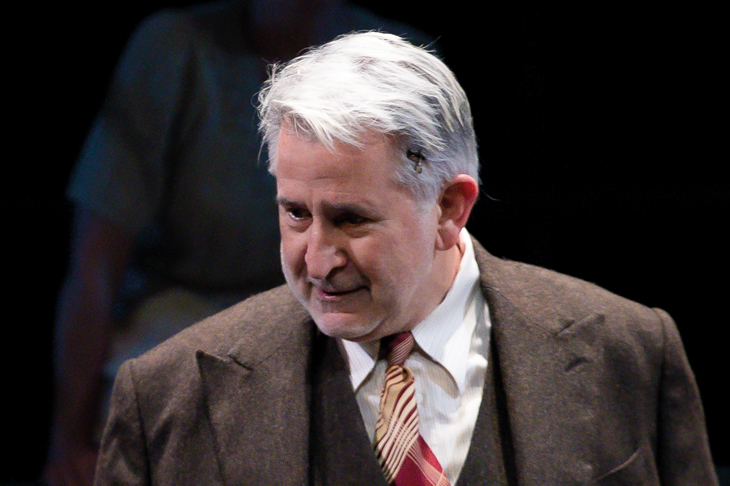
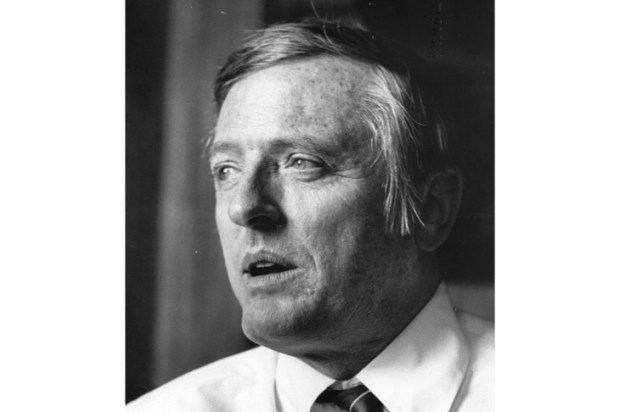
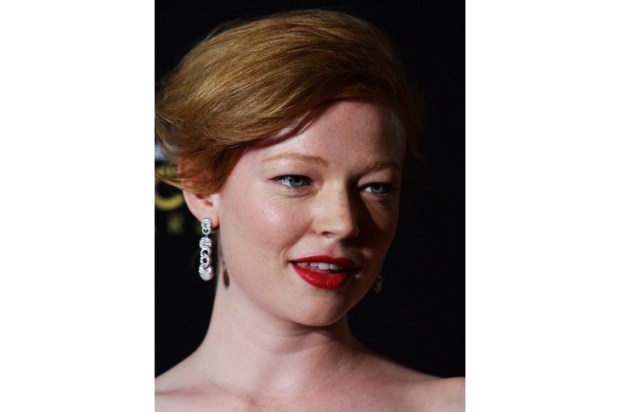
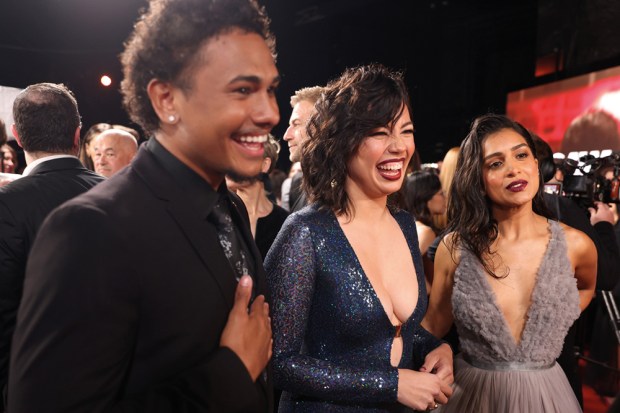
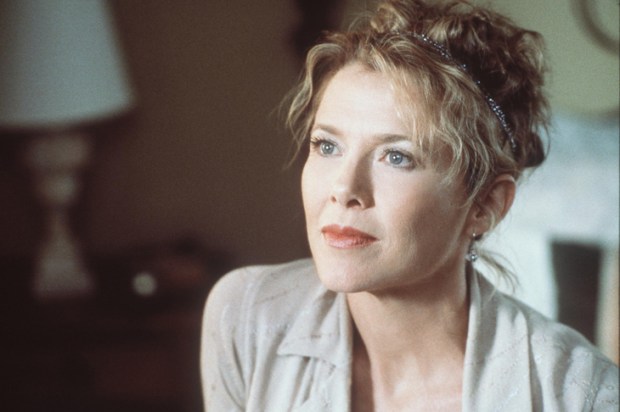
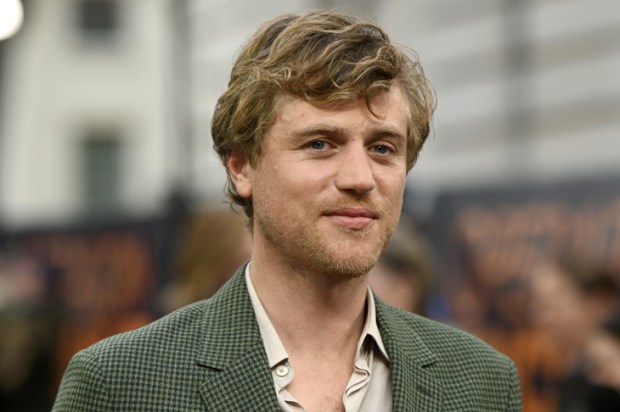
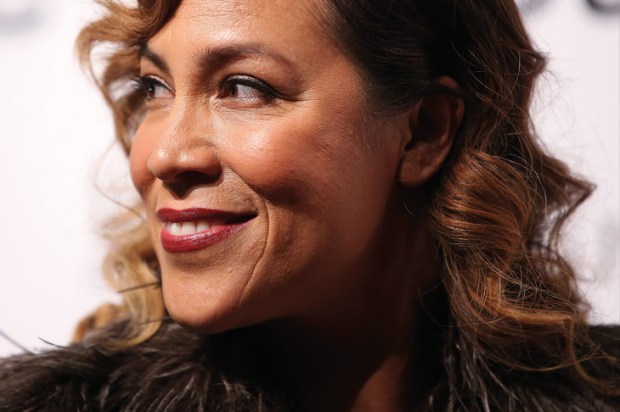






Comments
Don't miss out
Join the conversation with other Spectator Australia readers. Subscribe to leave a comment.
SUBSCRIBEAlready a subscriber? Log in